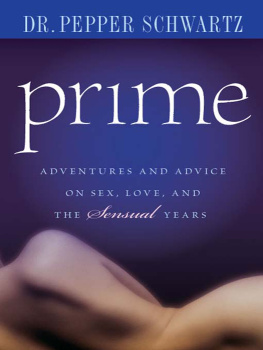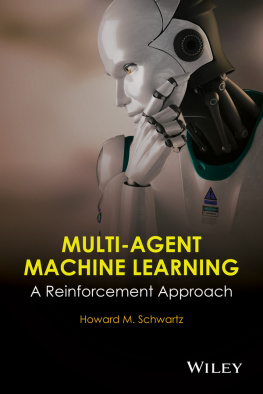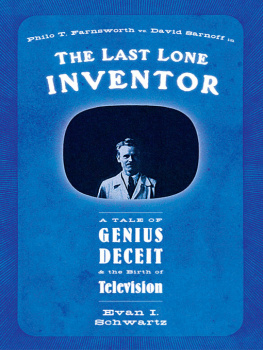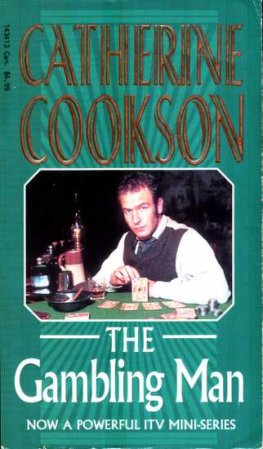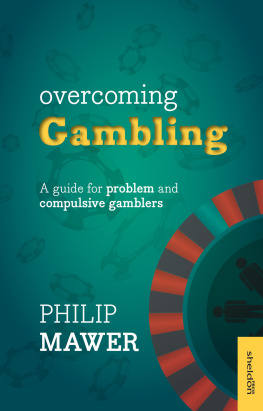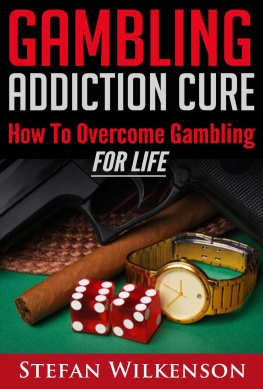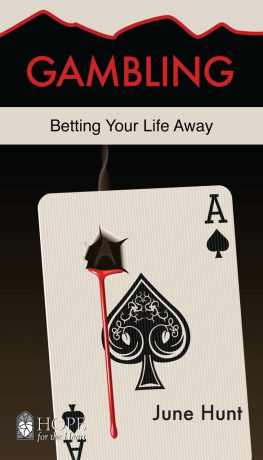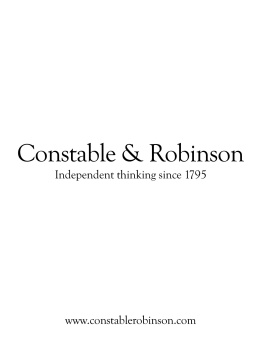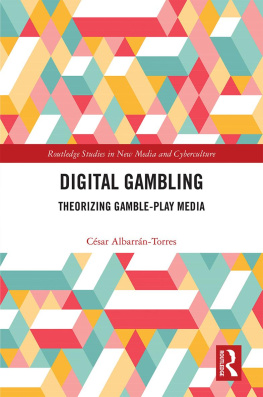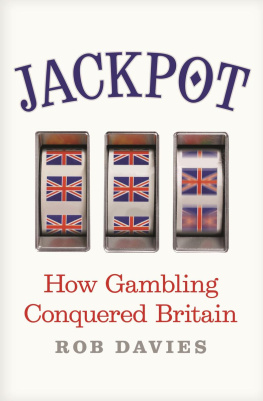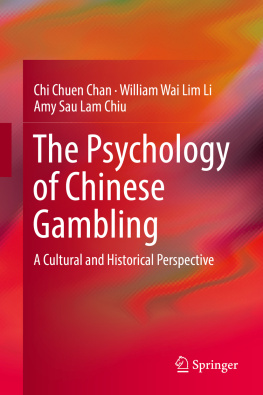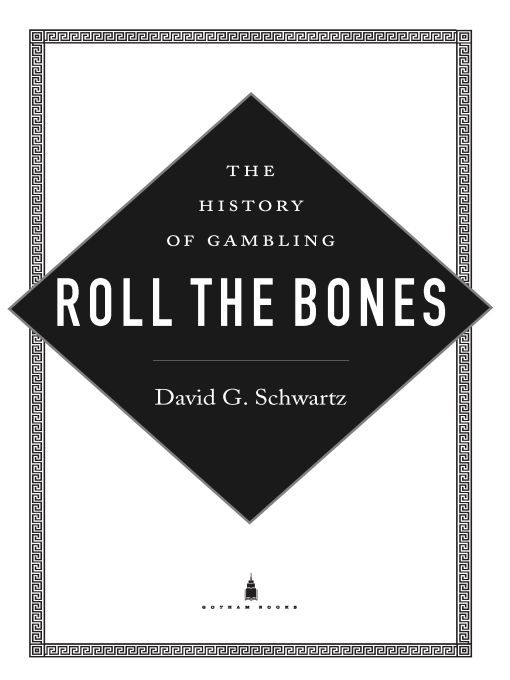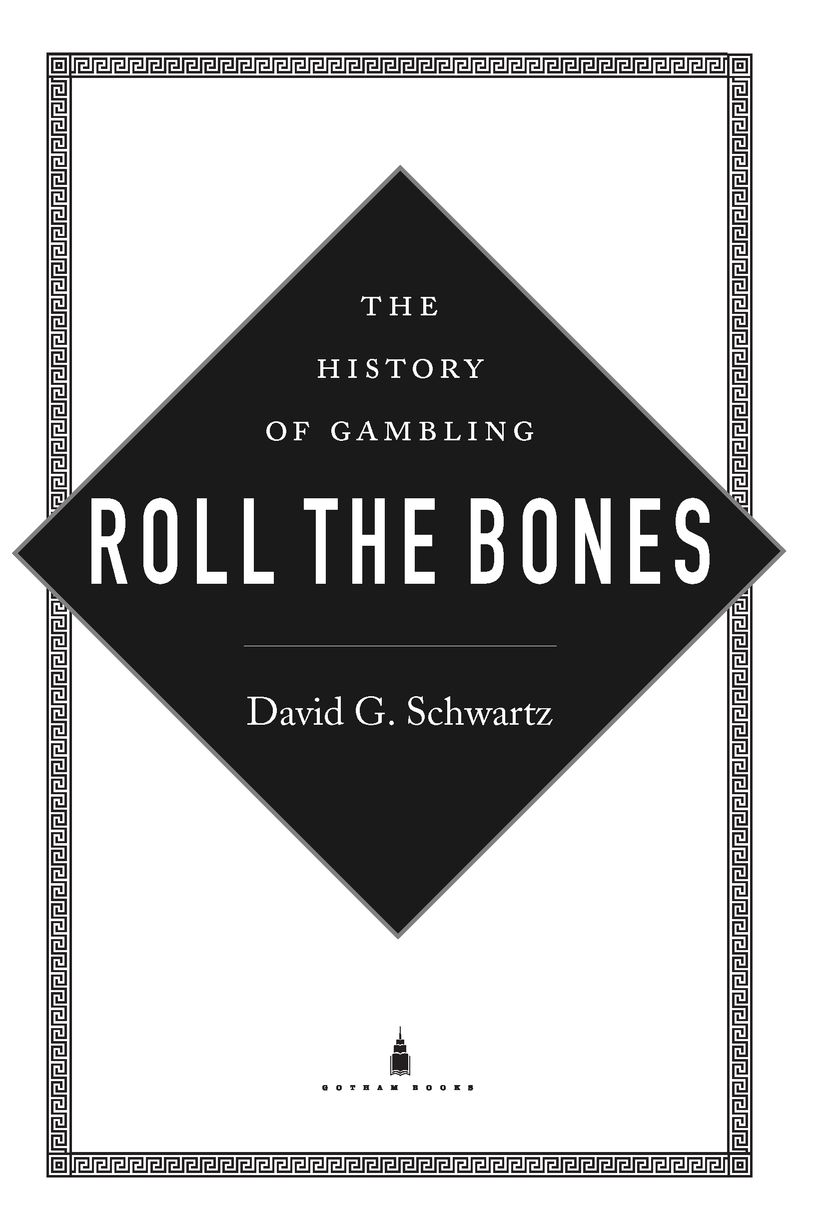Table of Contents
For Eric H. Monkkonen (1942-2005),
my dissertation advisor, mentor, and friend
FOREWORD
by James McManus
Whoever wants to know the heart and mind of earths citizens needs to understand gambling. In every tribe and country today, physical games represent, and often have startling price tags attached to, hunter and warrior skills. Why? Because our ancestors depended for their survival on the ability of a few elite males to run fast and wield lethal projectiles, against either wild animals or enemy tribesmen. Todays athletes mimic those feats in symbolic rituals, sometimes called games, while the rest of us make financial and emotional wagers on the outcome. At a higher symbolic level, cerebral games like poker, chess, bridge, and what we call handicapping mimic what scouts, hunting-party leaders, tribal chiefs andnowadaysteam captains, coaches, generals, and presidents do. While our physical and mental skill sets both continue to evolve, the competitive goal deep in our cells feels pretty much the same as it did twenty thousand years ago on the African savannahnot starving to death or getting eaten alive by hyenas, or pillaged and raped by the guys from across the river. Go, team! Whos your daddy? Shes all in! He scores!
David Schwartzs comprehensive new history illuminates these feelings and behaviors as no book before it. He has marshaled evidence from hundreds of sources and deftly braided it into a five-thousand-year saga of risk and reward. From the gamblers hymn in the Rig Veda in the third millennium B.C. through cockfights and dice games and bullfights all the way up to Internet gambling and $2 billion casinos, Schwartz provides the telling anecdotes and clinching minutiae to help us understand the risk-taking fervor that destroys many lives but advances human civilization.
In America, the story begins rather late but it picks up steamand big bucksin a hurry. From Puritan whist tables, Mississippi riverboats, and Gold Rush saloons to Wall Street, Las Vegas, and Internet gambling sites, the ways weve done battle and business and explored our vast continent have echoed, and been echoed by, our risk-loving acumen. We now host two annual World Series in which the players wear sunglasses, sateen jackets, and baseball caps. In both contests luck, probability, decoys, position, and stealing are critical. One game seems to have been invented near New York just before the Civil War, the other in New Orleans during the Jefferson administration. In 2006 they continue to vie for the title of national pastime, while the older game seems poised to become the planets main gambling contest.
In the meantime our judges and presidents gamble, Tony Soprano hosts the executive seven-card stud game, and professional athletes wager long money on whose suitcase will appear first on the airport carousel. (Michael Jordan, for one, liked to tip the baggage handlers beforehand.) Poker and football are avidly contested on Super Bowl Sunday, everyone bets on March Madness, and winners get showered with endorsements and take star turns on Leno and Letterman. In many jurisdictions, however, even low-stakes action is subject to raids by police.
More than a few folks believe that gambling isnt natural or virtuous. For a long time it went hand in hand with hard liquor, foul cigars, loose women, and concealed weapons. Even today, gamblers either lose money or take other peoplesnot by hard, honest toil, but by cunning and ruthlessness. This helps to explain why the two main strains of our heritage will forever be in conflict. But the risk-averse Puritan work ethic has taken the American people at least as far as the frontiersmans urge to light out and seize the main chance; in balance, theyve made us who we are.
Our ambivalence about games becomes more pronounced as the possibility of cheating increases. In 1861 a British vessel bearing Confederate envoys across the Atlantic was intercepted by a Yankee captain, creating a problem that threatened to bring England into the war on the side of the South. One war at a time was President Lincolns rationale as he freed the ambassadors. Lesser politicians demanded to know whether he would also apologize to the Crown. Said Lincoln: Your question reminds me of an incident which occurred out west. Two roughs were playing cards for high stakes, when one of them, suspecting his adversary of foul play, straightway drew his bowie-knife from his belt and pinned the hand of the other player upon the table, exclaiming, If you havent got the ace of spades under your palm, Ill apologize.
Young Dwight D. Eisenhower courted Mamie Doud with his poker winnings. As supreme allied commander, he outfoxed the Nazis on D-day, and as president he pulled off a nuclear bluff against Mao over Quemoy and Matsu. He got called, however, by Khrushchev when a U-2 weather plane was shot down in Soviet airspace. His vice president, Richard Nixon, had won enough playing five-card stud in the navy to finance his first congressional campaign. Atop the Republican ticket, however, both men downplayed their poker credentials, fearing they would alienate voters. Hearing this, one of Nixons professors at Whittier College remarked, A man who couldnt hold his own in a first-class poker game isnt fit to be president of the United States.
In November 2000, with our countrys line of succession up for grabs for the first time since 1789, supreme courts in Tallahassee and Washington decreed whether chads had been dimpled or pregnant, noodged, or in some cases, eaten. In other recounts, the lead in New Mexico changed hands three times, with one count putting Al Gore ahead of George W. Bush by four votes. If the final tally had ended in a tie, New Mexicos constitution declared that its electoral votes would go to the winner of a mutually agreed-upon game of chance. No-limit Texas holdem, anyone?
In a more recent showdown, generals commanded by President Bush deployed desert-camouflage decks to target the fifty-two most-wanted Baathists. Mr. Bush had implied he would call Frances bluff in a UN Security Council vote on whether to support the invasion of Iraq. Its time, he said, for people to show their cards. Meanwhile, many wonder whether Mr. Bush has artfully countered the bargaining chips in Iranian and North Korean arsenals while playing Plutonium Poker. (The term is Fred Kaplans, in Slate.com.) Pyongyang, Tehran, Al-Qaeda, and Iraqi insurgents all may remind us of what the Texas oilman Crandall Addington said during the 1981 World Series: Limit poker is a science, but no-limit is an art. In limit, you are shooting at a target. In no-limit, the target comes alive and shoots back at you.
Our keenest observer of all, Alexis de Tocqueville, wrote this in Democracy in America: Those living in the instability of a democracy have the constant image of chance before them, and, in the end, they come to like all those projects in which chance plays a part. This was true, he deduced, not only because of the promise of profit but because they like the emotions evoked. It remains unclear which gambling games Tocqueville had witnessed, but the perceptive Frenchman came to appreciate our allegiance to chance while traveling in 1831 aboard the steamboat Louisville along the Mississippi River, the original American mainstream.
In the pages that follow, David Schwartz follows through and expands upon Tocquevilles insight. And he makes clear that its not just Americans who like rolling the bones. Mesopotamians were casting colored stones and


